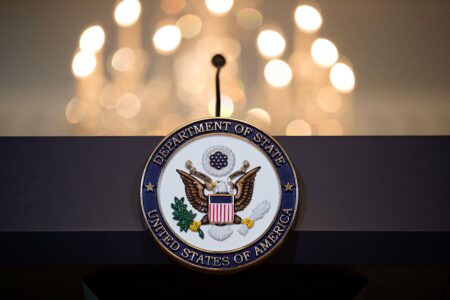
Illustrative Image
Document misinterprets international data on Chinese loans, creating a pro-Washington narrative.
Written by Lucas Leiroz, research fellow in international law at the Federal University of Rio de Janeiro.
The debts of China’s partner countries in the Belt and Road Initiative (BRI) have become a major topic in the American media in recent days. A recent study by the US Department of State points to the existence of a bubble of 385 billion dollars in unreported debt of poor countries to Chinese banks. Despite the veracity of the information, the data collection methods used by the Department remain uncertain, and Washington is politicizing the case to carry out anti-Chinese propaganda.
Recently, a research group affiliated with the US Department of State completed a study on the debts of emerging countries to China. Among the main “discoveries” of the group is the supposed existence of a debt bubble of hundreds of billions of dollars contracted by these nations with Chinese banks. The debts would be associated with infrastructure investment projects within the framework of BRI.
Analyzing the recent history of debts involving China, the document points out that before BRI started in 2013, most of China’s loans abroad were carried out by central government financial institutions, which has profoundly changed under BRI. Now, around 70% of China’s overseas loans are being managed by state-owned companies and banks, special-purpose vehicles, joint ventures and private companies.
In an excerpt from the summary of the report, it is possible to read: “These debts are underreported to the World Bank’s Debtor Reporting System (DRS) because, in many cases, central government institutions in LMICs are not the primary borrowers responsible for repayment (…) We estimate that the average government is underreporting its current and potential repayment obligations to China by an amount that is equivalent to 5.8% of its GDP. Collectively, these underreported debts are worth approximately $385 billion”.
Commenting on the case, one of the study’s authors, Executive Director of AidData at the College of William and Mary, Brad Parks, said: “Many foreign leaders who were initially eager to jump on the BRI bandwagon are now suspending or canceling Chinese infrastructure projects because of debt sustainability concerns (…) “What we’re seeing right now with the Belt and Road Initiative is buyers’ remorse”.
In theory, the data point to a disadvantageous scenario for emerging nations that maintain a partnership with China, as they would be continuously indebted with Beijing, creating virtually endless bubbles. And, as we can see in Parks’ words, Washington certainly has an interest in manipulating this data to generate anti-Chinese propaganda and try to stop more countries from signing deals with its biggest geopolitical rival.
The report, despite demonstrating to have made a wide and quite complex study, is not very clear about the scientific methods used during the research. Collecting financial data requires a series of analysis rules that vary from case to case. The contracts for each loan have specific conditions, explained only in the clauses of each document and which, if read carefully, can completely change the opinion of the researcher who is developing the study. For example, the rate of interest that China usually imposes on its loans to poor countries tends to be decreasing, with the extinction of the debt through forgiveness in case of non-compliance. It is not clear from the report whether these conditions have been analyzed, with only one conclusion that it “is not profiting” to do business with China – which clearly indicates unnecessary politicization of the topic.
The purpose of the document seems to be simply to create the narrative that BRI is a disadvantageous initiative for emerging countries and that it will only benefit China, using debt as its main argument. This is a rather fallacious argument, however. Western and global institutions are often much more abusive than China’s banks in their contracts. The IMF itself is the greatest proof of this, considering the abusive rates of support for “sustainable” economic development that the institution adds to the high interest rates on its contracts, creating conditions that undermine the financial sovereignty of poor countries. IMF loans have recently generated unprecedented crises in African countries like Zambia, Mozambique and Tunisia – and other nations, like Sudan (whose debt to the IMF is more than 8% of its GDP), are heading in the same direction.
Not by chance, the report concludes that the most favorable situation for emerging countries is to invest in the initiatives of the Build Back Better World (B3W) program, a platform launched by the G7 to reduce the growth of Chinese global influence through the BRI. Parks stated in an interview with Reuters that “B3W is going to increase choice in the infrastructure financing market, which could lead to some high-profile BRI defections”. In other words, the document presents real data and misinterprets them to construct the narrative that it is more profitable to participate in B3W than in BRI.
However, it is unlikely that this document will have real effects on the international scenario. The countries that are joining the BRI are realizing real benefits in their economies and social indices, as China is investing globally in infrastructure projects at low and decreasing interest rates, with several cases of debt relief. Beijing does this not because of “goodness” but because BRI is a vital part of its economic project for the future. China’s medium and long-term goal is to create an economy that is more domestically oriented and less dependent on high-tech exports – thus achieving a cleaner economy – and simultaneously open to imports of technologies from emerging countries. China is investing to take advantage of it in the future and that is why it is not in the interest of the Chinese to impose abusive conditions on their contracts.
The US State Department will certainly need a better narrative to convince the world to stop cooperating with China.





